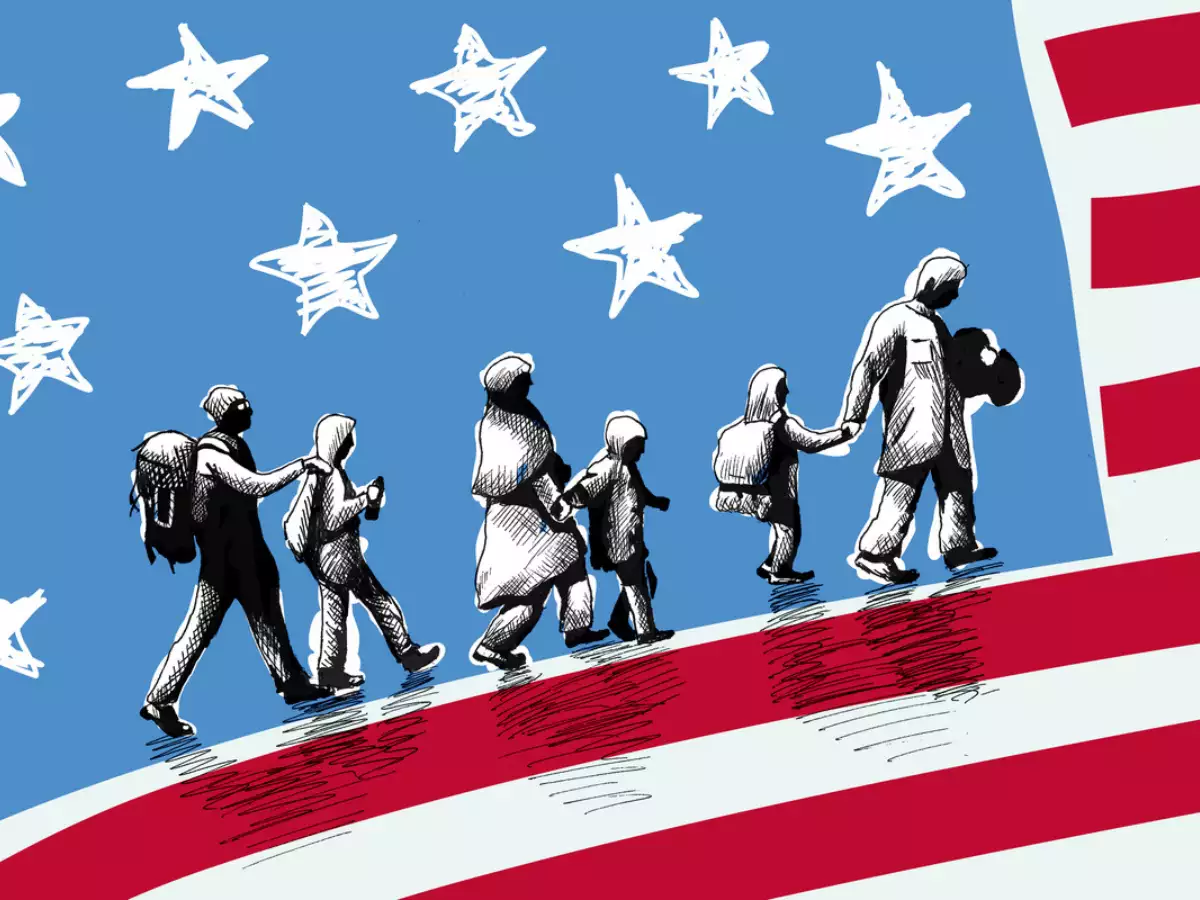Options for undocumented immigrants seeking legal residency
Introduction
Undocumented immigrants face a myriad of challenges, including the constant fear of deportation and limited access to essential services. Among these challenges, the pursuit of legal residency stands as a crucial goal for many individuals and families. This article aims to explore various options available to undocumented immigrants seeking legal residency in the United States.
Temporary Protection Programs
Deferred Action for Childhood Arrivals (DACA)
One of the primary avenues for temporary relief is the Deferred Action for Childhood Arrivals (DACA) program. DACA provides eligible individuals who arrived in the United States as children with protection from deportation and work authorization. To qualify for DACA, applicants must meet specific criteria, including continuous residence in the U.S. since June 15, 2007, and absence of certain criminal convictions. The application process involves submitting Form I-821D, Consideration of Deferred Action for Childhood Arrivals, along with supporting documents and applicable fees. While DACA offers vital benefits, such as work authorization and protection from deportation, it does not provide a pathway to permanent residency or citizenship.
Temporary Protected Status (TPS)
Another option available to undocumented immigrants is Temporary Protected Status (TPS), which grants temporary lawful status to individuals from designated countries facing ongoing armed conflict, environmental disasters, or other extraordinary circumstances. To qualify for TPS, applicants must meet specific nationality and residency requirements established by the U.S. government for each designated country. Once granted TPS, individuals can live and work legally in the U.S. for a specified period, renewable at the discretion of the Department of Homeland Security. However, TPS does not lead to permanent residency or citizenship, and beneficiaries must maintain continuous eligibility to retain their status.
Other temporary relief options
In addition to DACA and TPS, undocumented immigrants may explore other forms of temporary relief, such as humanitarian parole or nonimmigrant visas. Humanitarian parole may be granted in cases of urgent humanitarian need or significant public benefit, allowing individuals to temporarily enter or remain in the U.S. for a specific period. Nonimmigrant visas, such as U visas for crime victims or T visas for trafficking victims, provide temporary protection and work authorization to eligible individuals who cooperate with law enforcement in criminal investigations. While these options offer temporary reprieve from deportation, they do not provide a direct pathway to legal residency or citizenship.
Family-Based Immigration
Immediate relatives
For undocumented immigrants with qualifying family relationships, family-based immigration offers a potential pathway to legal residency. Immediate relatives of U.S. citizens, including spouses, unmarried children under 21, and parents, may be eligible to apply for immigrant visas and adjust their status to lawful permanent residents. The process typically involves filing Form I-130, Petition for Alien Relative, establishing the familial relationship, and demonstrating eligibility for immigrant status.
Preference categories
In addition to immediate relatives, family-sponsored immigration includes preference categories for more distant relatives of U.S. citizens and lawful permanent residents. Preference categories prioritize certain familial relationships based on the degree of kinship and legal status of the petitioner. These categories include unmarried sons and daughters of U.S. citizens, spouses and unmarried children of lawful permanent residents, and married sons and daughters of U.S. citizens. However, the availability of immigrant visas in these preference categories is subject to annual quotas and may result in significant waiting times for eligible beneficiaries.
Application process and considerations
The process of family-based immigration involves several steps, including filing the appropriate petition, awaiting approval, and navigating the consular processing or adjustment of status procedures. Depending on the circumstances, undocumented immigrants may face unique challenges, such as overcoming bars to admissibility or demonstrating hardship waivers. Seeking guidance from experienced immigration attorneys or accredited representatives can help navigate the complexities of the application process and increase the chances of success.
Employment-Based Immigration
Employment-based immigrant visas
Undocumented immigrants with specialized skills or job offers from U.S. employers may explore employment-based immigration as a pathway to legal residency. Employment-based immigrant visas are divided into preference categories based on the nature of the employment and the qualifications of the applicant. These categories include priority workers, professionals with advanced degrees or exceptional abilities, skilled workers, and certain special immigrants, such as religious workers or investors.
Special immigrant categories
In addition to employment-based preference categories, certain special immigrant categories provide unique opportunities for undocumented immigrants seeking legal residency. Religious workers, including ministers, priests, and other religious professionals, may qualify for immigrant visas if they meet specific criteria established by U.S. immigration laws. Similarly, investors and entrepreneurs who invest significant capital in U.S. businesses and create jobs for American workers may be eligible for immigrant visas through the EB-5 Immigrant Investor Program. Other specialized occupations, such as Afghan and Iraqi translators or international organization employees, may also qualify for special immigrant status under specific circumstances.
Application procedures and potential challenges
The process of obtaining an employment-based immigrant visa involves several steps, including labor certification, petition filing, and consular processing or adjustment of status. However, undocumented immigrants may encounter various challenges throughout the application process, such as meeting the requirements for specific visa categories, securing job offers from qualifying employers, or demonstrating eligibility for immigrant status. Additionally, issues related to unlawful presence or prior immigration violations may complicate the application process and require strategic legal advocacy to overcome.
Conclusion
In conclusion, undocumented immigrants seeking legal residency in the United States have several options available to pursue lawful status and eventual citizenship. From temporary protection programs like DACA and TPS to family-based and employment-based immigration pathways, individuals can explore various avenues to achieve their immigration goals. However, navigating the complex and ever-changing landscape of immigration law requires careful consideration, strategic planning, and expert legal guidance. By understanding the available options and seeking professional assistance, undocumented immigrants can take proactive steps towards securing their future and contributing to their communities as lawful residents and citizens of the United States.


